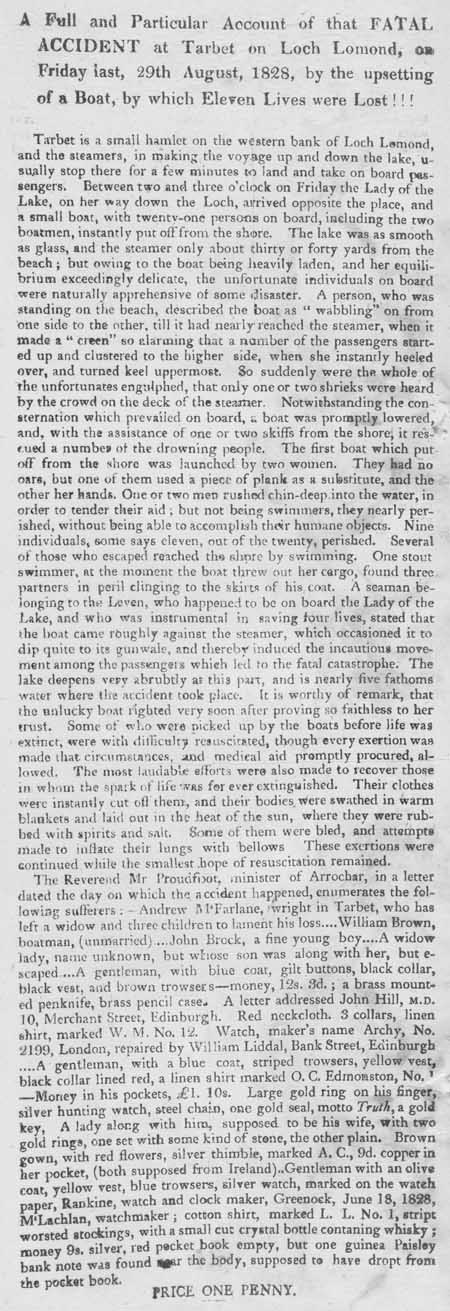Commentary
This broadside begins: 'A Full and Particular Account of that FATAL ACCIDENT at Tarbet on Loch Lomond, on Friday last, 29th August, 1828, by the upsetting of a Boat, by which Eleven Lives were Lost!!!' The broadside was priced at one penny. Its publishers and place of publication are not noted. The Scot James Watt (1736-1819) revolutionised the steam engine by inventing the separate condenser in 1769, which made steam-powered ships viable. Steam ships were developed in America and Europe throughout the 1780s and 1790s, but the world's first successful passenger steamer was the 'Comet', built and launched in 1812 by another Scot, Henry Bell (1767-1830). Early steamers were quite prone to accidents, as the report shown suggests. The 'Lady of the Lake', which sank off Tarbet, was launched in 1815 and was probably the first Clyde steamer to be named after one of Sir Walter Scott's works. Several other steamers would subsequently take their names from Scott. Broadsides are single sheets of paper, printed on one side, to be read unfolded. They carried public information such as proclamations as well as ballads and news of the day. Cheaply available, they were sold on the streets by pedlars and chapmen. Broadsides offer a valuable insight into many aspects of the society they were published in, and the National Library of Scotland holds over 250,000 of them.
View Transcription | Download PDF Facsimile
|
 |
Probable date published:
1828 shelfmark: L.C.Fol.74(091)
 View larger image
View larger image
|


